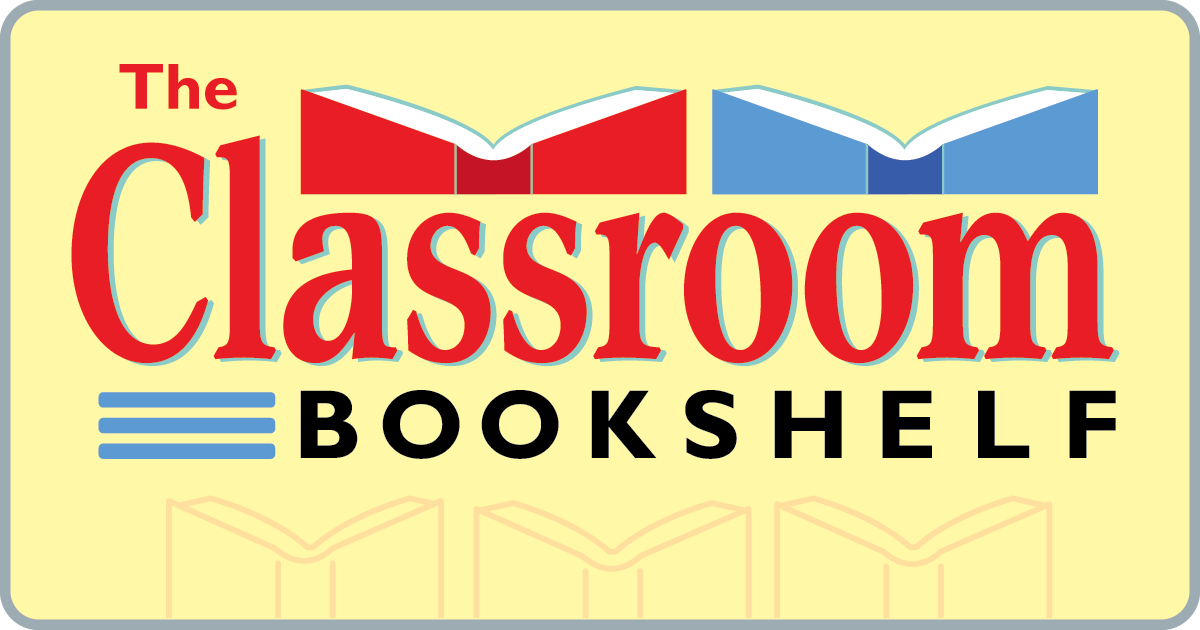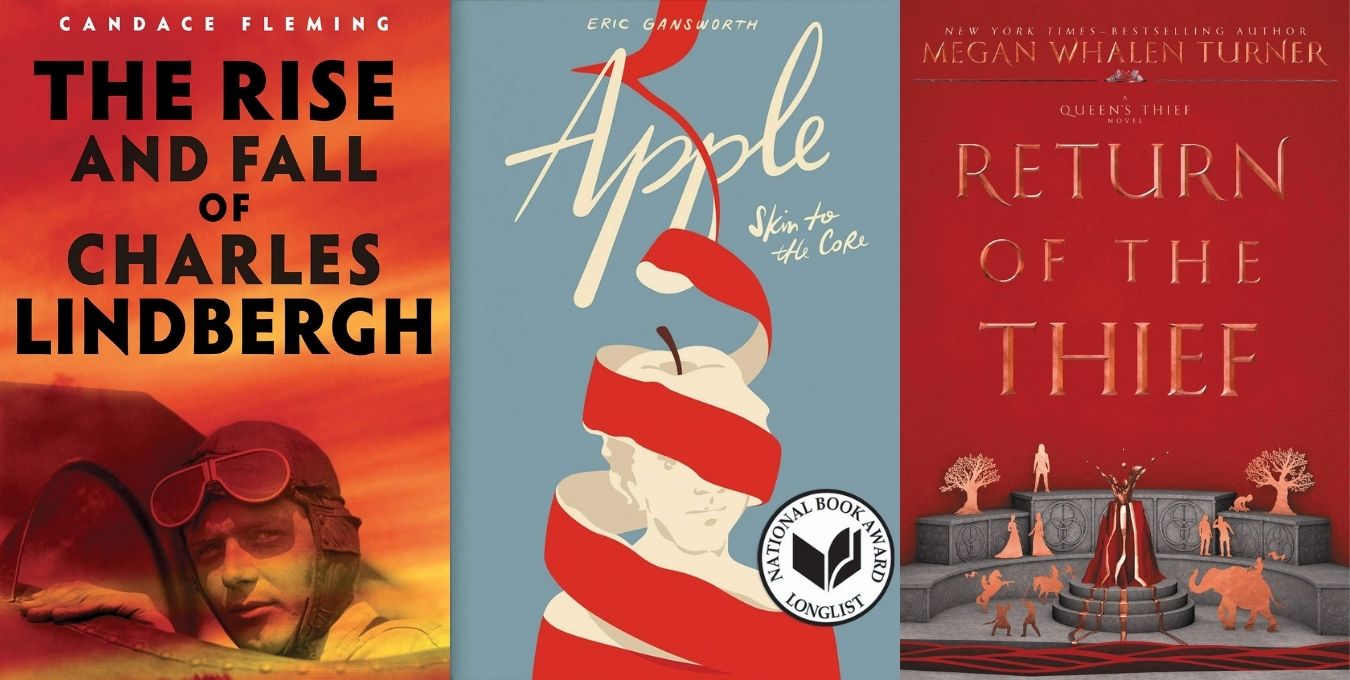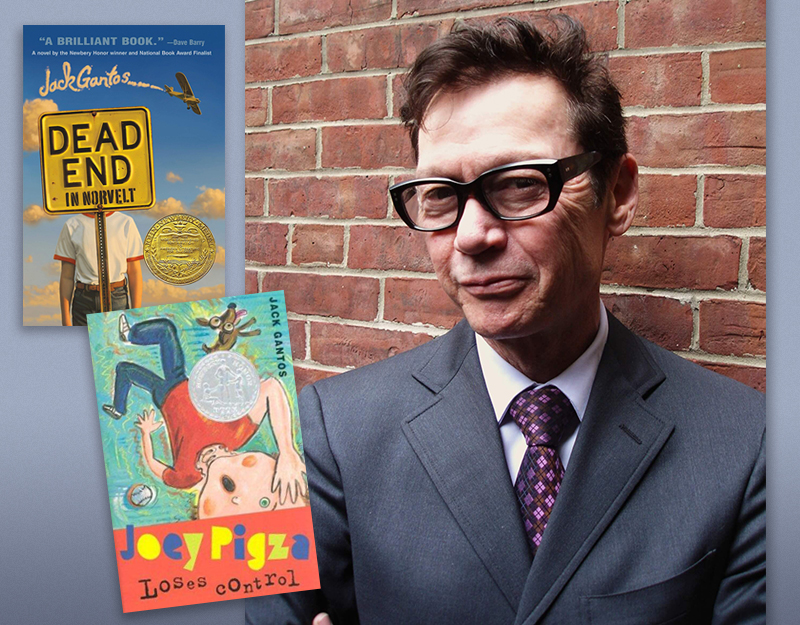An A from Miss Keller
An A from Miss Keller
Written and illustrated by Patricia Polacco
Published by G.P. Putnam’s Sons Books for Young Readers, 2015
ISBN #978-0399166914
Book Review
Beloved author, illustrator, and storyteller Patricia Polacco shares another heartwarming account of an influential teacher with her latest picturebook, An A from Miss Keller. In this memoir, Trisha is flattered and excited to have been chosen for Miss Keller’s writing class. She’s also incredibly intimidated as rumors circulate that “Killer Keller” has never given a student an A in her class. On the fist day of class, Miss Keller sets the bar high: “I expect you to dazzle me. Impress me. Send me into ecstasy with your brilliance. I want to see if you deserve to be here at all!” But no matter what Trisha does, there’s no pleasing Miss Keller, who continues to challenge students to sharpen their senses and “give words wings.” Trisha finds solace in her elderly neighbor Pop Schloss, who helps her with her assignments and tells her a remarkable story about Miss Keller. It’s that relationship that motivates Trisha to write in ways she never thought she could and earn the elusive grade from Miss Keller. As expected, Polacco’s prose is lush and emotive, and her signature illustrative pencil-and-marker style complements the characters’ views and perceptions of each other. Polacco is in her element with this story, which joins the ranks of her admired teacher tales, such as Thank You, Mr. Falker, The Junkyard Wars, and Mr. Lincoln’s Way. For its touching account and numerous classroom applications, you and your students will admire it, too.
Teaching Ideas and Invitations
A History of Teachers. A twist on the familiar activity of having a student write about a past teacher is to have students write about someone else’s past teacher. Similar to how Trisha learned about Miss Keller from Pop’s story, have students interview a family member, neighbor, or other adult she or he knows about a memorable teacher from the past. Help students brainstorm questions to ask during the interview, and teach them some note-taking techniques to help them gather and record rich and important details about their interviewee’s teacher. Make sure to encourage students to ask about a particular event or moment the interviewee remembers and reasons why that teacher has stuck out in the interviewee’s memory. Students can then turn their notes into a poem, narrative, essay, or other product to share with the adults they interviewed.
ADVERTISEMENT
ADVERTISEMENT
Text Sets with Teacher Books. An A from Miss Keller is the latest addition to Polacco’s picturebooks about influential teachers. Gather as many of these texts as you can (see a list in Further Explorations below), and engage students in an inquiry about those books. Besides spotlighting an inspiring and supportive teacher, what else do they have in common? How does each book differ from the others? How does Polacco describe each of the teachers at the beginning of the books and then at the end? How does she illustrate each teacher? How does Trisha’s experience with each teacher resemble or differ from one another? What does she say about each of them in the afterword at the ends of the books? After answering these questions, have students pair the books together around different themes or features, writing essays or creating presentations to explain the text sets they created within this text set of books about teachers.
Teacher Tropes. Another take on the previous activity is to have students examine the teacher tropes that are prevalent in children’s and young adult literature. Miss Keller fits the popular characterization of the teacher who shows tough love to get her students to succeed. Other tropes might include the gentle, sweetly supportive teacher or the unconventional, inspiring teacher. How does each of them approach the ideas of high standards and caring? Do these stereotyped kinds of teachers really exist in real life? Gather a text set of books about teachers that extends beyond Polacco’s oeuvre to investigate these portrayals.
Mentor Text for Memoir Writing. If you students are well familiar with writing personal narratives, they may be ready to try memoir writing. While personal narratives are often framed as a single, small moment or event in a person’s life, a memoir weaves several small moments or events together by a particular focus, theme, or reflection. An A from Miss Keller is an excellent mentor text for memoir writing. Have students identify the individual moments and events that make up the story, and then discuss how each of those contribute to Trisha’s overall reflection on Miss Keller. Encourage students to try doing the same for their next writing project. You might even have them look through past personal narratives to see if they can be connected by a common theme or reflection and then see if they can craft those narratives into a memoir.
Writing Exercises and Craft Moves. Since this story is about Trisha’s year in a writing class, she describes several kinds of exercises, strategies, assignments, and techniques designed to help students improve their writing skills. Use each of these activities with your own students to help them with their writing: making a list of words that convey love without using the word love, sitting outside to sharpen the senses, listen in on lunchroom conversations for dialogue, interviewing an older person about an object that means something to him or her, etc. Have students reflect on their process to complete those experiences and discuss whether each activity indeed helped them improve their writing on a particular piece or across a series of pieces. Then encourage them to reread Trisha’s reflections on those activities to compare and contrast the experiences.
Character Representations in Illustrations. Award-winning illustrators like Patricia Polacco don’t just create pretty pictures; they purposefully craft their illustrations to convey meaning in interesting ways. Engage students in a study of the character illustrations in this book. What do they notice about how each character is drawn? How does that illustration support, enhance, or counter what we learn about the character in the written text? What artistic techniques did Polacco use to do that (e.g., color, line, shape, placement, etc.)? Provide students with a range of artistic media, including digital media, and have them try illustrating a character from one of their own pieces of writing or from a text they have read using the concepts they learned from Patricia Polacco’s work.
Author/Illustrator Study. Patricia Polacco’s picturebooks are a favorite in many classrooms among both students and teachers. Gather a collection of her work and biographical information, including interviews. Read through her books as a class, noting similarities and differences across the books’ formats and styles. Take a close look at her writing techniques, noting her word choices and use of figurative language. Ask your students to identify patterns in setting, theme, character, and plot across the books. Examine Patricia Polacco’s storytelling techniques, as well as the topics and perspectives she writes about in her books. Compile a list of ‘writing lessons’ gained from this author study and invite your students to try out some of the writing techniques you have discussed in their own writing. Have them do the same with Polacco’s illustrations. What styles, media, and techniques does she employ? What themes or symbols do they see across her illustrations? Gather information from the websites listed below, your local librarian, the Internet, and as other biographical sources.
Critical Literacy
Factors for Student Success. Pop attributes his son’s success as a journalist to Miss Keller’s support and encouragement. Is that really all that’s needed for a student to succeed in school and a career? We are in a political era where teachers are upheld to be the most important (and sometimes the single) factor in children’s academic success and therefore the most likely to blame for anything short of that. Search newspaper articles and op-ed pieces, blogs, and other online resources for readings that address the question of students’ academic success and are appropriate for your students’ grade and reading levels. Some helpful articles include “When Does Holding Teachers Accountable Go Too Far?” (NY Times), “Not Just Teachers: Supporting Students’ Success” (U.S. Department of Education) and “A Brief Overview of Teacher Evaluation Controversies” (PBS NewsHour), but there are many more. Make sure to include a range of opinions about the matter. Help students do close readings of these texts and write an argumentative piece (perhaps in response to one of the texts) advocating their understandings about the issue. You might even encourage them to publish their piece in a local periodical or an online forum.
Further Explorations
Online Resources
Patricia Polacco’s website
http://www.patriciapolacco.com
Patricia Polacco’s Twitter Feed
https://twitter.com/patriciapolacco
Reading Rockets Interview with Patricia Polacco
http://www.readingrockets.org/books/interviews/polacco
Internet Public Library Interview with Patricia Polacco
http://www.ipl.org/div/askauthor/polaccobio.html
Books
Codell, E. R. (2003). Sahara special. Hyperion.
Creech, S. (2001). Love that dog. HarperCollins.
Hannigan, K. (2004). Ida B. … and her plans to maximize fun, avoid disaster and possibly save the world. Greenwillow Books.
Hill, K. (2000). The year of Miss Agnes. Aladdin.
Houston, G. (1997). My great-aunt Arizona. Ill. by S. C. Lamb. HarperCollins.
Perl, E. (2010). Dotty. Ill. by J. Denos. Abrams Books for Young Readers.
Polacco, P. (1998). Thank you, Mr. Falker. Philomel Books.
Polacco, P. (2001). Mr. Lincoln’s way. Philomel Books.
Polacco, P. (2010). The junkyard wars. Philomel Books.
Polacco, P. (2012). The art of Miss Chew. G. P. Putnam’s Sons.
Polacco, P. (2014). Mr. Wayne’s masterpiece. G. P. Putnam’s Sons.
Smalls-Hector, I. (2003). Don’t say ain’t. Ill. by C. Bootman. Charlesbridge.
Filed under: Biography & Memoirs, Nonfiction Picture Books, Picture Books
About Grace Enriquez
Grace is an associate professor of language and literacy at Lesley University. A former English Language Arts teacher, reading specialist, and literacy consultant, she teaches and writes about children’s literature, critical literacies, and literacies and embodiment. Grace is co-author of The Reading Turn-Around and co-editor of Literacies, Learning, and the Body.
ADVERTISEMENT
ADVERTISEMENT
SLJ Blog Network
The Moral Dilemma of THE MONSTER AT THE END OF THIS BOOK
Cover Reveal and Q&A: The One and Only Googoosh with Azadeh Westergaard
Winnie-The-Pooh | Review
Parsing Religion in Public Schools
ADVERTISEMENT








